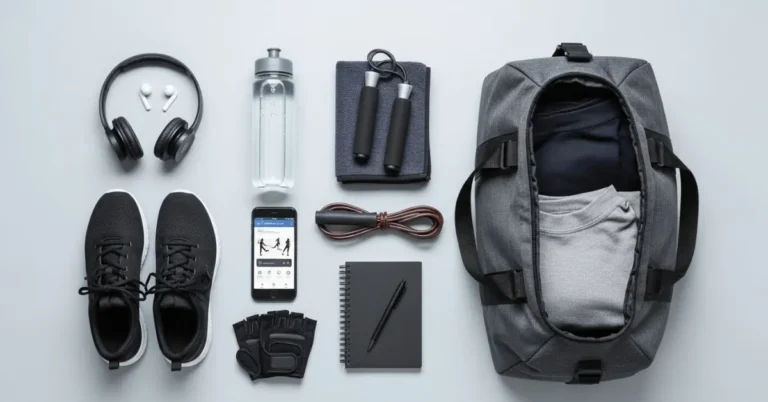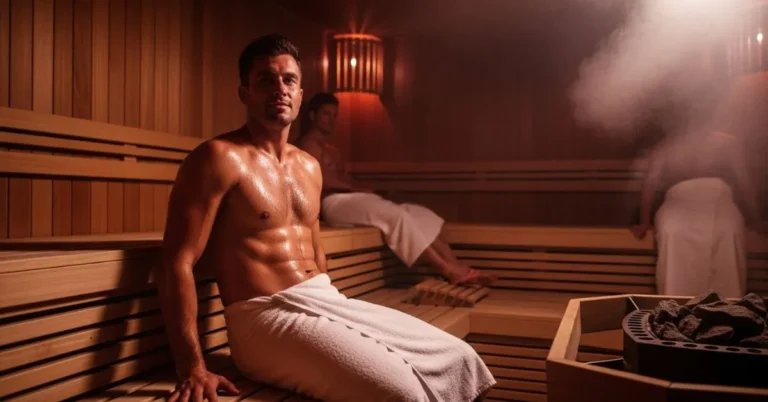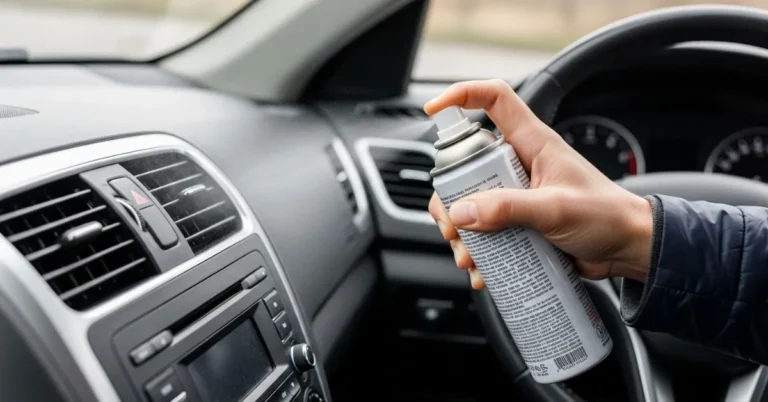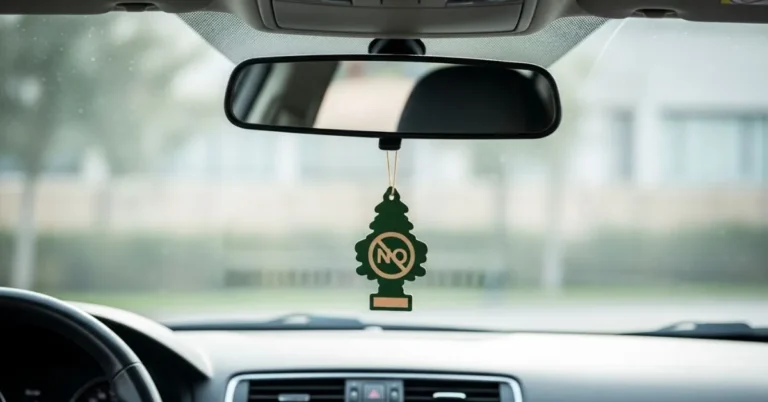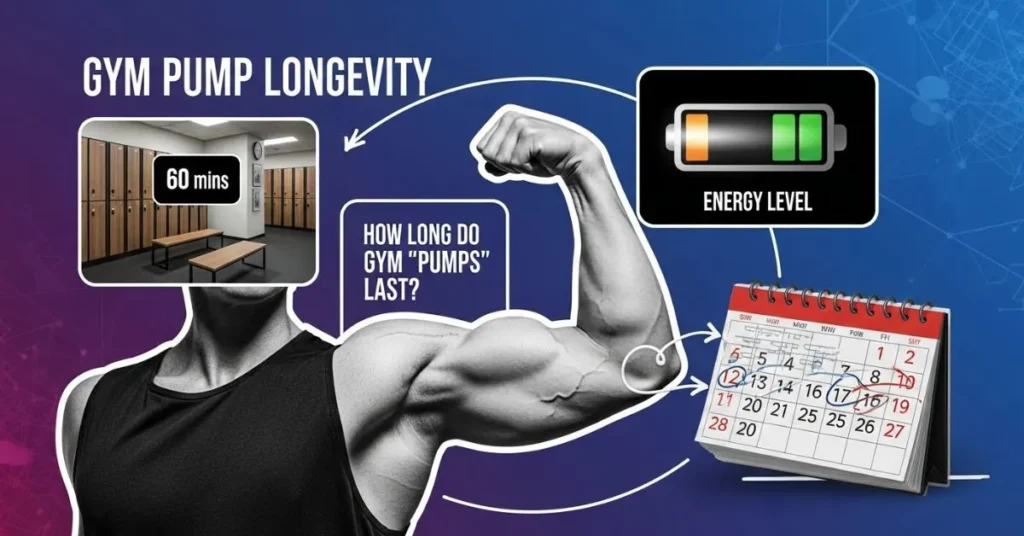
How long do pumps last gym muscles? You know the feeling standing in front of the mirror after a killer workout, veins popping, muscles swollen, t-shirt sleeves hugging your biceps like they were tailored by a custom clothier who understands “arm day.” You look stronger. You feel unstoppable. In your mind, you’re auditioning for the next Marvel movie.
That, my friend, is the pump one of the most addictive and satisfying sensations in the fitness world. But before you get too attached, you notice something: an hour later, those biceps aren’t quite as boulder-like. Your chest feels less full. And by the time you’re scrolling through your phone at home, your “superhero” look has dialed back to “regular human.”
So, the burning question is: How long does the pump really last before it fades away? And more importantly, can you make it last longer? Let’s explore the science, myths, and practical strategies so you can get the most out of that post-workout glow.
Contents
- 1 1. What Exactly Is a Gym Pump?
- 1.1 2. How Long Do Pumps Last Gym Muscles in Reality?
- 1.2 3. The Science Behind the Pump
- 1.3 4. Why Do Pumps Feel So Good?
- 1.4 5. How to Make Your Pump Last Longer
- 1.5 6. Mini Workout Tips for Maximizing the Pump
- 1.6 7. Are Pumps Just for Bodybuilders?
- 1.7 8. The Role of Supplements in Pump Duration
- 1.8 9. Can You Keep a Pump All Day?
- 1.9 FAQs
- 1.10 Expert Thoughts – Enjoy the Pump, Build the Muscle
- 1.11 About the Author
1. What Exactly Is a Gym Pump?
In the gym, a pump isn’t about bicycle tires or plumbing the temporary swelling of muscles happens when you work them hard. As you lift, your muscles demand more oxygen and nutrients. To meet that demand, your blood vessels expand, allowing more blood to flood into the working muscles.
Think of it like filling a water balloon the extra fluid makes it bigger and tighter. Except in this case, the “balloon” is your biceps, chest, or quads. This process also gives you that tight, firm feeling in the muscle and yes, the mirror selfies that follow are fully justified.
2. How Long Do Pumps Last Gym Muscles in Reality?
A pump lasts anywhere from 30 minutes to 2 hours for most people. The exact duration depends on several factors:
- Workout intensity – Higher rep ranges with shorter rest periods tend to hold the pump longer.
- Muscle group worked – Larger muscle groups, like the legs, may keep a pump slightly longer due to the sheer blood volume involved.
- Nutrition – Adequate carbs and sodium improve muscle fullness.
- Hydration – Dehydration is a pump killer.
- Genetics – Some people are naturally “pump-prone,” while others lose it quickly.
When your heart rate and circulation return to normal, your muscles start losing that extra blood volume, and with it, the pump.
Read More: How Long Should You Spend at the Gym Per Day to Build Muscle?
3. The Science Behind the Pump
The fancy term for the pump is hyperemia, meaning “increased blood flow.” When you contract your muscles repeatedly, blood is forced in faster than it can escape. That influx brings oxygen, nutrients, and plasma into the muscle, while metabolic byproducts like lactate and hydrogen ions build up, creating that intense, satisfying burn.
This swelling makes your muscles look bigger and creates tension on your cell walls, which may play a small role in signaling your body to build more muscle over time. While the pump itself is temporary, the training that causes it can have lasting effects on growth.
4. Why Do Pumps Feel So Good?
Let’s be real part of the thrill of working out is seeing instant results in the mirror, even if they’re temporary. Pumps trigger a rush of endorphins (your body’s feel-good chemicals), giving you a mood boost that can rival your morning coffee.
Plus, there’s a deep psychological reward. You’ve just worked hard, and your body looks like it. Even Arnold Schwarzenegger famously said in “Pumping Iron” that the pump was one of the greatest feelings in the world (his actual analogy was a bit more… colorful).
5. How to Make Your Pump Last Longer
If you’re tired of watching your pump fade before you even get your gym bag into the car, here are some tried-and-true ways to extend it:
- Hydrate before and during your workout – Muscles are about 75% water. Keep them full.
- Eat a pre-workout meal with carbohydrates and sodium – Carbs help store water in your muscles, and sodium helps retain it.
- Shorten your rest periods – Keep blood trapped in the muscle by moving quickly between sets.
- Use isolation movements – Focused exercises increase local blood flow.
- Finish with high-rep burnout sets – A big final push can supercharge your pump before leaving the gym.
6. Mini Workout Tips for Maximizing the Pump
If your goal is to walk out of the gym looking like a comic book hero (even if it’s temporary), these strategies will help:
- Supersets: Do two exercises targeting the same muscle group one after the other with no rest in between.
- Drop Sets: Start heavy, then reduce the weight and keep repping until you can’t.
- Slow Negatives: Spend 3–4 seconds lowering the weight during each repetition.
- Occlusion Training (BFR): Use light bands to restrict blood flow slightly. Research shows this can intensify and prolong pumps (but should be done carefully).
7. Are Pumps Just for Bodybuilders?
Not. While competitive bodybuilders often focus on pumps for stage aesthetics, casual lifters, and athletes can benefit too. Pumps can:
- Increase nutrient delivery to muscles.
- Improve recovery by flushing waste products.
- Boost training motivation
- Help you connect mentally to the muscles you’re working.
Even endurance athletes sometimes use pump-focused strength training for muscular endurance.
8. The Role of Supplements in Pump Duration
If you want to give your pump an extra push, certain supplements can help no magic, just physiology:
- Citrulline Malate – Improves nitric oxide production, increasing blood flow.
- Beetroot Powder – Rich in nitrates for vascular support.
- Creatine Monohydrate – Draws water into muscles for fullness.
- Electrolyte Mixes – Prevent dehydration and keep your pump strong.
Always stick with reputable brands and check labels avoid sketchy “pump boosters” with unlisted ingredients.
9. Can You Keep a Pump All Day?
Unless you plan on doing curls every hour, the answer is no. A 24-hour pump isn’t realistic without advanced (and temporary) bodybuilding show techniques like carb loading and sodium manipulation.
However, building muscle mass over time means you’ll look naturally fuller with or without a pump. The more trained your muscles are, the more dramatic your pump will be, and the more “base size” you’ll keep afterward.
Read More: What Age Can You Be to Go to the Gym: Gym Rules Explained
FAQs
1. How long do pumps last gym muscles for beginners?
Usually, 30–60 minutes, beginners typically use lighter weights and lower volume.
2. Does drinking more water help keep a pump longer?
Yes, proper hydration is one of the easiest ways to maintain muscle fullness.
3. Can pre-workout supplements extend a pump?
Some, like citrulline malate and beetroot powder, can help sustain pumps by improving blood flow.
4. Why do some people lose their pump faster?
It often comes down to hydration, diet, workout intensity, and genetics.
5. Is chasing the pump necessary for muscle growth?
No, but it can improve nutrient delivery, enhance training focus, and keep workouts fun.
Expert Thoughts – Enjoy the Pump, Build the Muscle
So, how long do pumps last gym muscles? For most lifters, anywhere from 30 minutes to 2 hours. But instead of chasing a forever pump, use it as a short-term reward for hard work a signal you’re on the right track.
The real win isn’t walking around all day with swollen biceps it’s putting in the effort, session after session, until those biceps are always bigger, and with the right training, nutrition, and recovery.

